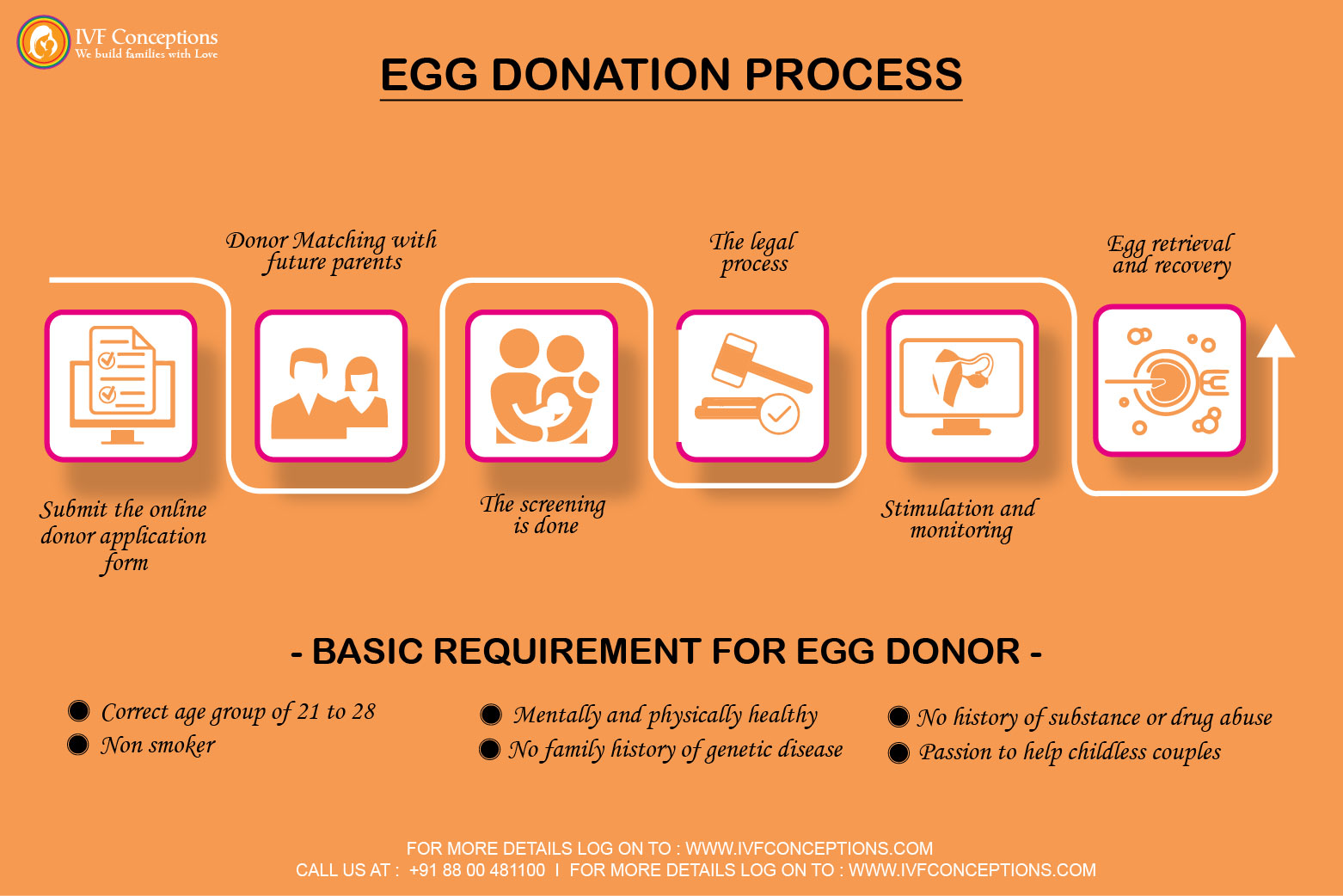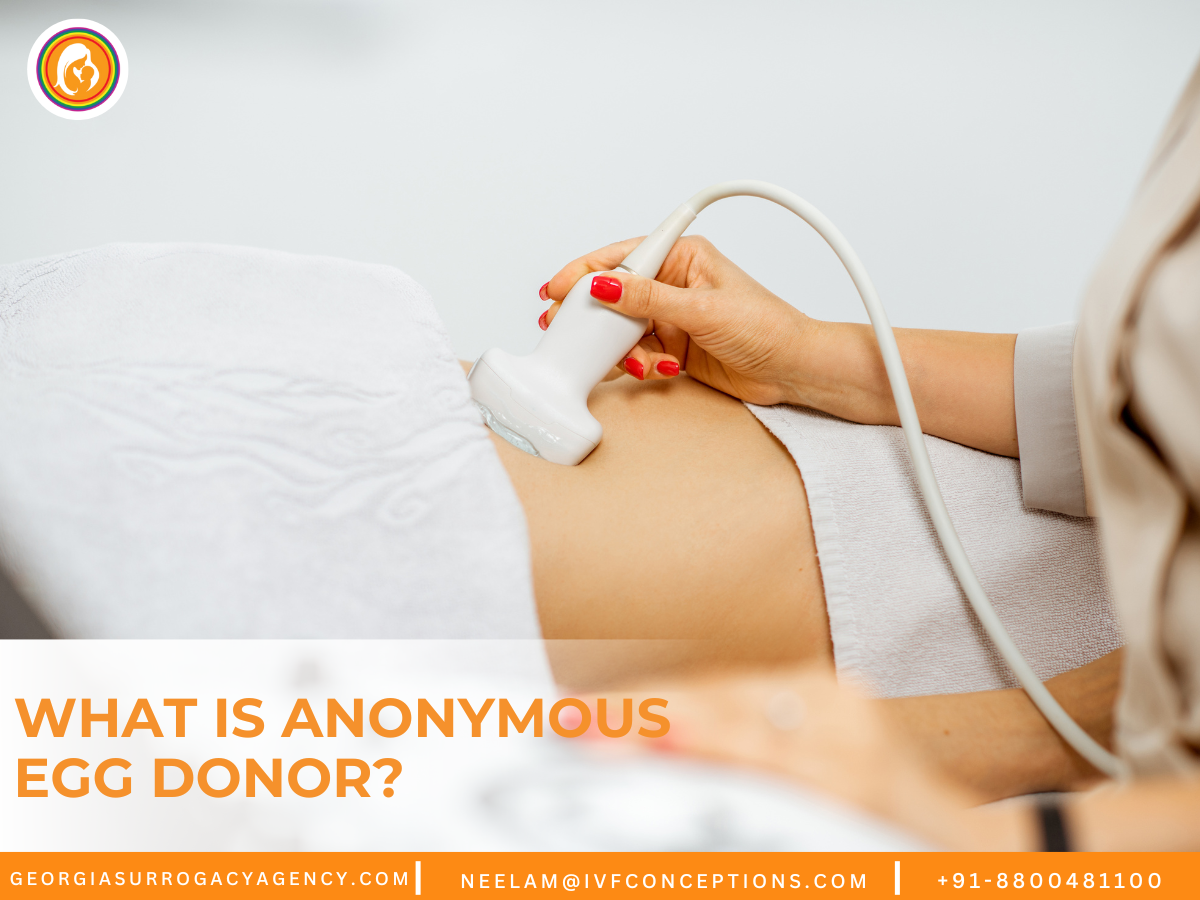What is Anonymous Egg Donor?
Ever thought about how anonymous egg donation helps with fertility treatments? It lets women give their eggs to help others have a child. But what’s an anonymous egg donor, and how does it work? Exploring this topic sheds light on the complex world of fertility options.
- Book an online appointment: Get a free online consultation.
- Call\W:+91-8800481100 Email:neelam@ivfconceptions.com
Key Takeaways
- Anonymous egg donation enables women to donate their eggs to help others conceive
- Donors are typically between 21-29 years old and have a healthy medical background
- The donor’s identity is kept confidential, protecting their privacy
- Recipient couples can have a child genetically linked to the father through this process
- Anonymous egg donation boasts high pregnancy success rates compared to other fertility treatments
More Resources to Read:
Hyperspermia Treatment and Cure: What to Know
Egg Donor vs Frozen Egg Bank: Which to Choose?
IVF and 2 Weeks Wait: Navigating the Waiting Game
Understanding the Concept of Anonymous Egg Donation
Starting a family through egg donation is both exciting and complex. Anonymous egg donation is a popular choice for many couples. It offers privacy and lets recipients pick the best donor while keeping the donor’s identity secret.
What is an Anonymous Egg Donor?
An anonymous egg donor goes through a detailed check-up to make sure they’re healthy in body and mind. They have a clean family history. Fertility clinics pick them to make detailed profiles for recipients to choose from. The donor’s identity stays private, thanks to doctor-patient confidentiality.
What is a Known Egg Donor?
Known egg donation is when a family member, like a sister or cousin, gives their eggs to the couple. It’s free of cost, as it’s a kind act. But, it can bring emotional issues that anonymous donation avoids.
Both anonymous and known egg donation need careful checks to protect everyone’s health. The choice between them depends on what the couple needs and wants.
“The anonymity of the egg donor allows us to focus on the medical and genetic aspects of the donation, without the emotional complexities that can arise with a known donor.”
What is cost of egg donor?
If you’re thinking about using an anonymous egg donor to grow your family, you should know the costs. In the U.S., the average cost for an egg donor cycle is between $20,000 to $30,000.
The main parts of the donor egg program costs are:
- Donor compensation, which usually ranges from $5,000 to $10,000, but can be more based on the donor’s skills and experience
- Medical screening and testing for the donor
- Legal fees for the donor and recipient(s)
- Fertility clinic fees, including the cost of medications and any extra procedures
The total cost can change based on the clinic, location, and the donation process details. Some clinics might have extra fees that affect the overall egg donation costs.
| Cost Item | Average Range |
| Egg Donor Compensation | $5,000 – $10,000 |
| Medical Screening and Testing | $3,000 – $5,000 |
| Legal Fees | $2,000 – $4,000 |
| Fertility Clinic Fees | $10,000 – $15,000 |
| Total Average Cost | $20,000 – $30,000 |
It’s key to work with your fertility clinic and legal team to grasp the egg donor compensation and all costs in the anonymous egg donor process. This way, you can plan and budget well for your family’s future.
If you are looking for affordable egg donation program, you might consider doing IVF with egg donor abroad. There are many countries like Ukraine, Georgia, Argentina, Mexico and Greece, where IVF with egg donor cost as low as $15,000.
Beside this, you can consider travelling egg donor, who are the donor based outside your country but are open to travel for egg donation in your country for fresh egg pick up. The cost of travelling egg donor is slightly higher due to travel, accommodation, flight and visa, but it is a good way to find your donor, if you are specific about the ethnicity of the egg donor you like.
How Does Anonymous Egg Donation Work?

When looking into anonymous egg donation, parents can check out detailed profiles of donors. These profiles share lots of information without revealing the donor’s identity. This lets parents pick a donor who fits their ideal for their child.
Choosing An Anonymous Egg Donation
Egg donation agencies and registries have big lists of anonymous donors. They make sure everything is legal and medical checks are done. Parents can look at the donor profiles, which include things like age, ethnicity, looks, education, hobbies, and health history.
This helps parents choose an anonymous donor eggs that matches what they want.
Egg Donor Information that you get
The anonymous egg donor‘s real name is kept secret, but parents get a detailed profile. This profile talks about the donor’s reasons and personal messages. It helps parents understand the person they’ve chosen to help them.
The egg donor profile is a big help in making a choice. It lets parents find the perfect match for their needs.
“The ability to review detailed donor profiles empowers recipients to make an informed choice that aligns with their preferences for their future child.”
The Role of Egg Donors and Intended Parents
When it comes to anonymous egg donation, both egg donors and intended parents are key. Egg donors keep their identities secret but feel proud to help others start families. Some donors might want to meet the donor-conceived child later, while others prefer to stay anonymous.
Most egg donors are okay if the donor-conceived adult doesn’t contact them. They know it’s the child’s choice. But, some donors feel great if they do get in touch, seeing the positive effect of their donation.
Insights from Egg Donors on Potential Contact
Many egg donors say they’re open to meeting the donor-conceived child if the child wants to. They feel happy knowing they helped someone build their family. But, they know the choice to contact them is up to the child.
Some egg donors prefer to keep their identity a secret. They’re happy knowing they’ve made a difference in an intended parent‘s life and their child’s life. They respect the family’s privacy and don’t want or expect any contact later.
Addressing Concerns of Intended Parents
Intended parents worry that a donor-conceived child might feel closer to the egg donor than to them. But studies show that kids who grow up in loving homes usually don’t see their conception details as a big deal. The parents who raised them are still seen as their main parents.
To help the donor-conceived child feel secure about who they are, intended parents should talk openly with their kids about how they were conceived early on. Even if meeting the donor is possible, it doesn’t change the parents’ role in the child’s life.
More Resources to Read:
IVF and PCOS: Fertility Solutions for Women
Egg Donor vs Frozen Egg Bank: Which to Choose?
Finding a Surrogate: Your Guide to Gestational Carriers
IVF Terminology and IVF Acronym 101: A Guide.
Conclusion
The anonymous egg donation process is a great way for parents to start a family when other methods don’t work. It gives them access to healthy eggs from donors who remain anonymous. This helps overcome fertility issues and makes dreams of having a child come true.
Donors go through strict checks and provide detailed profiles. Legal steps also protect everyone’s rights, including the child’s. This ensures the well-being of all involved.
With at-home DNA tests, there’s some worry about keeping donors’ identities secret. But, clinics work closely with parents and donors to handle these changes. They aim for clear communication and informed choices. This helps everyone feel secure and ensures the best outcome for the child.
In the end, anonymous egg donation helps parents beat big fertility hurdles and build the family they’ve dreamed of. It’s a journey that celebrates human strength and the endless love a child brings.
If you’d like to learn more about IVF, Egg Donation, or surrogacy services globally, check out the rest of our website at Georgia Surrogacy Agency. We offer legally secure and affordable surrogacy consulting services for FREE.
Our team has over 14 years of experience facilitating surrogacy arrangements, egg donation, and serving as an advocacy resource for infertile couples and LGBTQ individuals seeking to build families.
Get in touch for FREE SURROGACY CONSULTING:
Mobile: +91-8800481100 ( WhatsApp, Line, Viber)
Email: neelam@ivfconceptions.com

FAQs for anonymous egg donor
What is an anonymous egg donor?
An anonymous egg donor is a woman between 21-29 years old. She has a healthy background and donates her eggs to help couples have a child. Her identity stays private, linking the child to the father genetically.
What is the difference between an anonymous and known egg donor?
An anonymous donor keeps her identity secret. A known donor is often a family member, like a sister or cousin. Both types of donors must be healthy. But, known donations can lead to emotional issues, avoided with anonymous donations.
What are the costs involved with using an anonymous egg donor?
Using an egg donor costs between $20,000 to $30,000 in the U.S. This includes the donor’s pay, medical checks, legal fees, and more. Donors get paid $5,000 to $10,000. But, costs also include the fertility clinic, medicines, and extra procedures.
How does the process of choosing an anonymous egg donor work?
Agencies and registries list pre-checked anonymous donors. Parents look at detailed profiles of donors. These profiles share things like looks, health, education, and hobbies. This helps parents pick a donor that fits their wishes.
What type of information is provided about an anonymous egg donor?
Donors stay anonymous but give out a lot of info. Parents get to see the donor’s age, race, looks, school, hobbies, and health history. This helps parents choose the right donor.
How do egg donors feel about potential future contact with the donor-conceived child?
Donors feel proud helping families grow, even if they stay anonymous. Some might want to meet the child later. But, they understand if the child doesn’t want to contact them. They know it’s the child’s choice.
What are the concerns of intended parents regarding a donor-conceived child’s attachment to the egg donor?
Parents worry the child might feel closer to the donor than them. But, studies show donor kids feel connected to their parents. They see their birth story as just a small part of who they are.
Source Links
- Are Egg Donors Anonymous? | Egg Donation Anonymity
- Types of Egg Donation
- Is Egg Donation Anonymous Still? — SIMPLIFY

Highly esteemed, authoritative, and trusted professional with a 14-year of experience in international surrogacy. Advocate for Secure, Legal, and Affordable International Surrogacy.
Neelam Chhagani, MA (Counselling Psychology) and Holistic Infertility and Third-Party Reproduction Consultant.
Member of European Fertility Society, Best Surrogacy Blogger of 2020, with 300 dedicated blogs, and top contributor on Quora for Surrogacy.


Add Your Comment